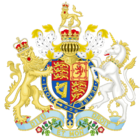Petroleum (Hawkers) Act 1881 facts for kids
| Act of Parliament | |

|
|
| Long title | An Act to regulate the hawking of petroleum and other substances of a like nature. |
|---|---|
| Citation | 44 & 45 Vict. c. 67 |
| Introduced by | Leonard Courtney (Under-Secretary of State for the Home Department) 29 July 1881 (Second reading of Bill) (Commons) |
| Territorial extent | United Kingdom |
| Dates | |
| Royal assent | 27 August 1881 |
| Other legislation | |
| Repealed by | |
|
Status: Repealed
|
|
The Petroleum (Hawkers’) Act 1881 was a law passed by the Parliament of the United Kingdom. It was made to control how people sold petroleum and similar liquids from carts or by going door-to-door. This way of selling is called hawking.
Contents
Why This Law Was Needed
In the 1870s, people became worried about how safe it was to carry petroleum around. Petroleum is a type of oil that can easily catch fire. People called hawkers would sell it from carts, especially in towns and cities.
There was an older law, the Petroleum Act 1871, but it wasn't strong enough. People often broke the rules. For example, some hawkers sold petroleum without a special permit called a licence. Others didn't follow the rules of their licence.
One problem was that the old law said petroleum could only be stored in a licensed "place." But a moving cart wasn't considered a "place." This made it hard to control hawkers. So, a new law was needed to make sure petroleum was sold safely. The Petroleum (Hawkers) Act 1881 was created to fix this problem. It also set a limit: hawkers could carry no more than 20 gallons (about 91 litres) of petroleum at a time.
What the Petroleum (Hawkers) Act 1881 Did
The Petroleum (Hawkers) Act 1881 became law on 27 August 1881. Its main goal was to set rules for selling petroleum and similar liquids by hawkers.
Main Rules of the Act
The Act had seven main parts, called sections:
- Section 1: This part gave hawkers the power to sell petroleum, but only if they followed the rules.
- Section 2: This section listed the important safety rules for hawking petroleum.
- Hawkers could not carry more than 20 gallons of petroleum.
- The petroleum had to be in a closed container that did not leak.
- The container needed to be aired out to prevent explosive gases from building up.
- No open flames or lights were allowed near the petroleum.
- Carts had to be designed to prevent petroleum from spilling.
- Hawkers had to be careful not to let petroleum spill into buildings or drains.
- They had to take steps to prevent fires or explosions.
- Section 3: This part changed some rules from the older Petroleum Act 1871. Any old rules that didn't fit with the new Act were no longer valid.
- Section 4: Police officers were given the power to stop offences. They could take away petroleum, containers, or carts if they thought the rules were being broken.
- Section 5: This section made sure that local town councils still had their own rules. If a town council said no to hawking petroleum, this Act did not override that.
- Section 6: This part explained what words like "carriage" (meaning a cart or vehicle) and "hawker" meant in the law.
- Section 7: This section gave the Act its short name and explained how it worked with other petroleum laws.
This Act was meant to be read together with the Petroleum Acts of 1871 and 1879. All three laws together were known as the Petroleum Acts 1871 to 1881.
What Happened After the Act
Even with the new law, some people still broke the rules. For example:
- In 1887, a petroleum hawker in Springfield, Essex, was charged with breaking the rules of the Act.
- In 1889, an oil seller in Chelmsford was charged for letting a light get too close to his cart while selling petroleum.
Later, in 1898, a special group in Parliament looked at the laws about petroleum. They found that there were still problems with how petroleum was stored, sold, used, and moved. They suggested that new rules were needed for hawking petroleum oil and spirit. However, no immediate changes were made to the laws.
The original Petroleum Act 1871 was eventually replaced by a new law called the Petroleum (Consolidation) Act 1928.
The Petroleum (Hawkers’) Act also applied to Ireland. It remained a law in the Republic of Ireland until 1972. In that year, it was replaced by the Dangerous Substances Act 1972.
See also
- Petroleum Act
 | Ernest Everett Just |
 | Mary Jackson |
 | Emmett Chappelle |
 | Marie Maynard Daly |

